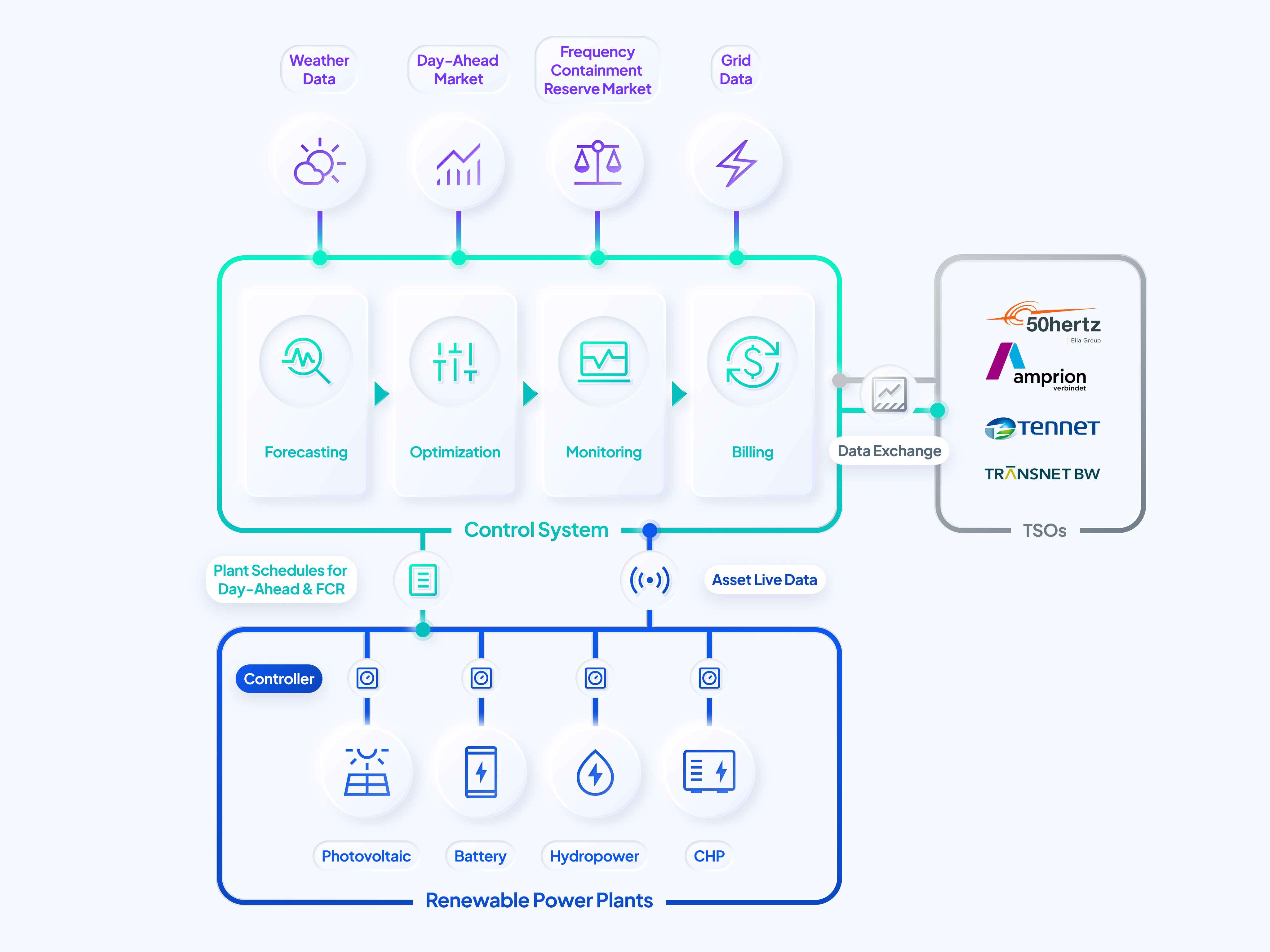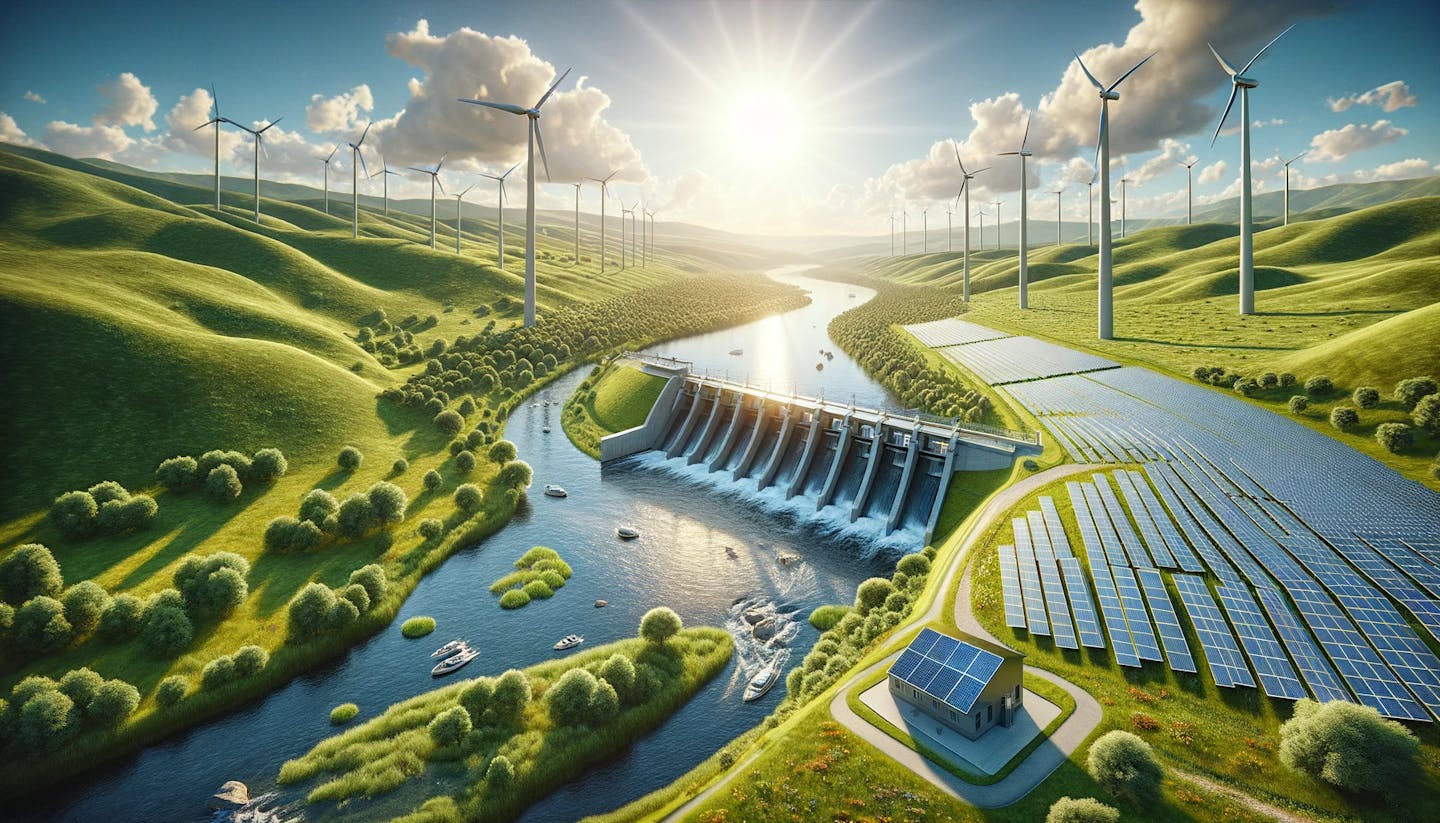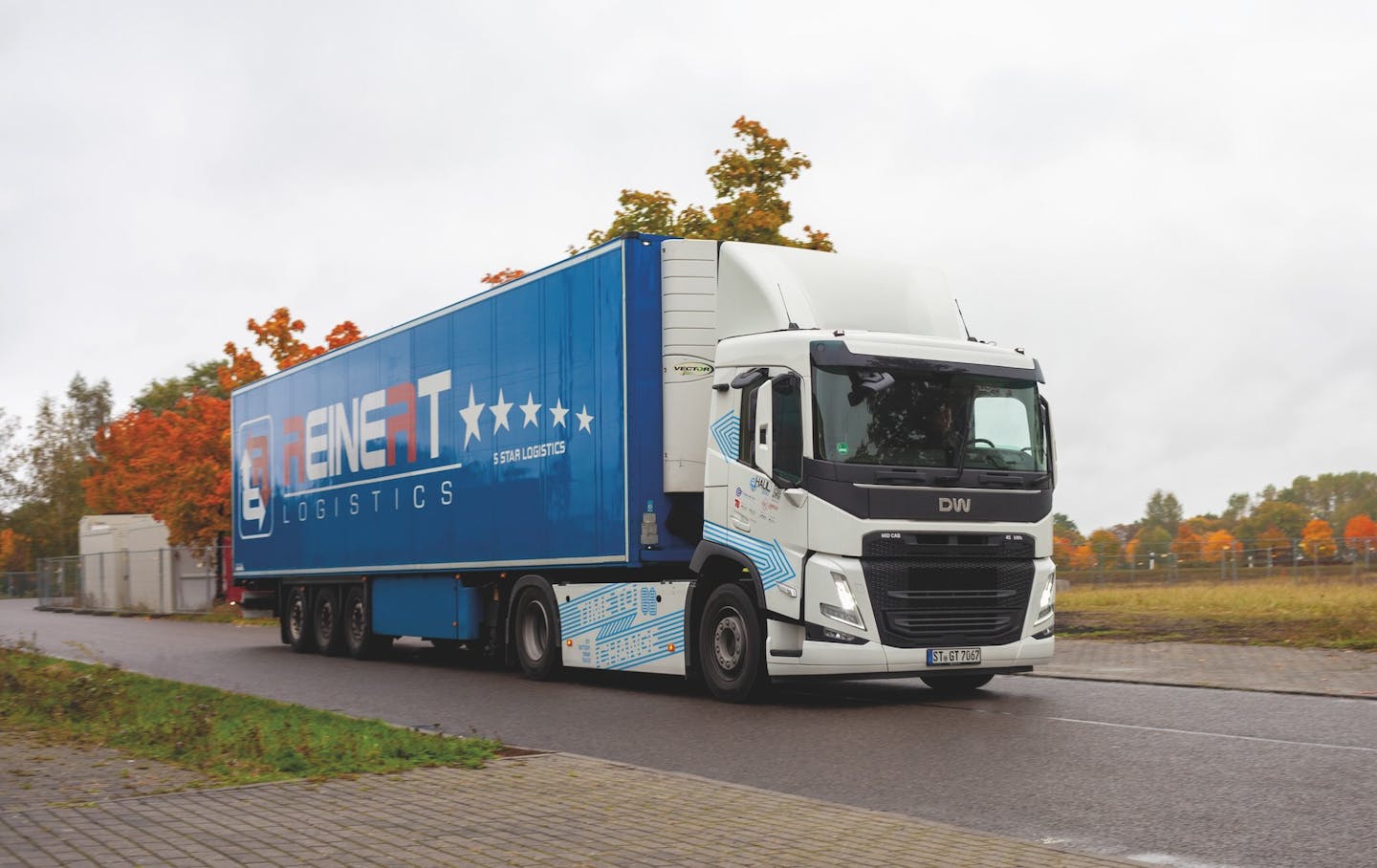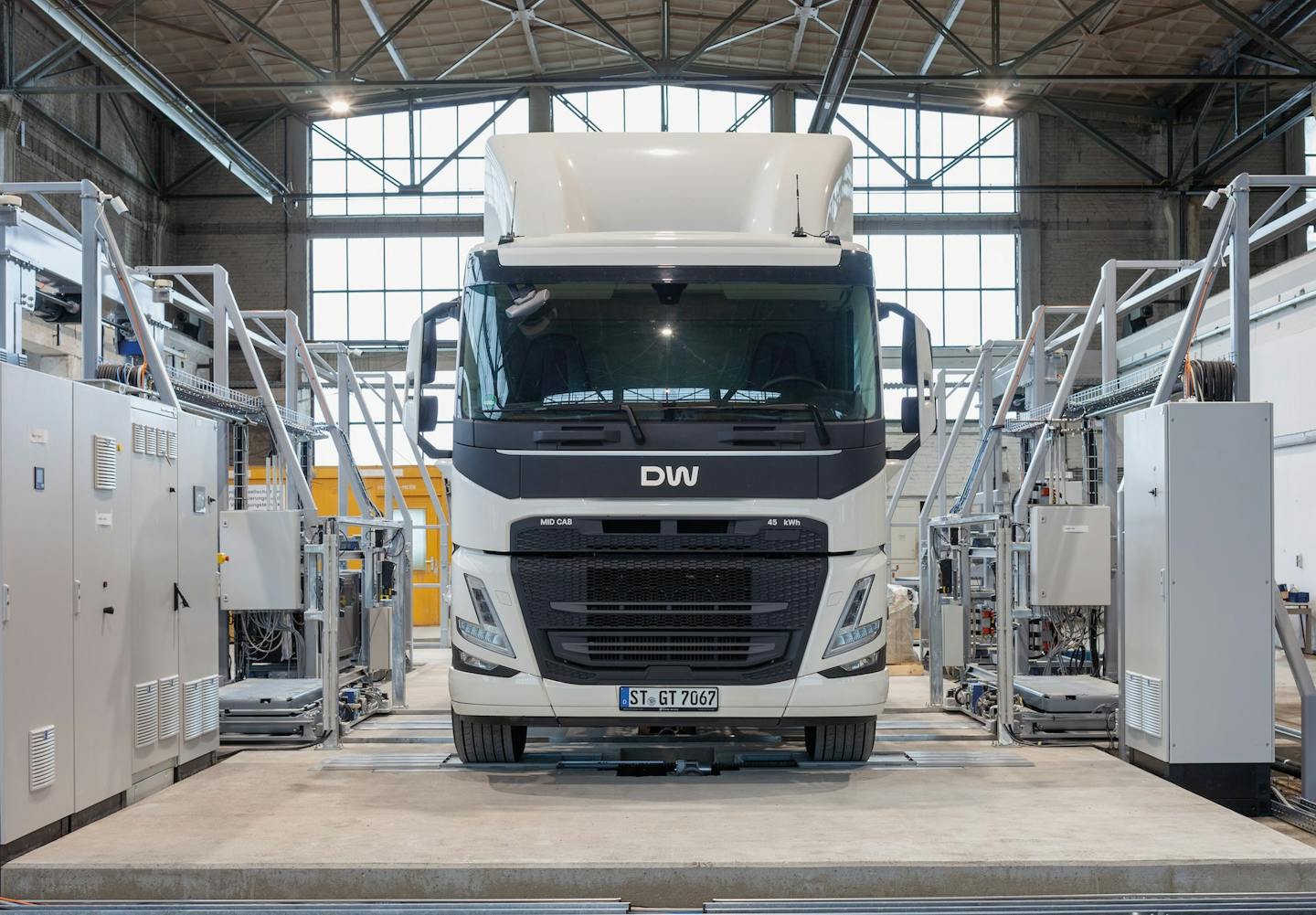Overview: The Energy Revolution
In an era where the transition to renewable energies is an unavoidable necessity, the research project VideKIS focuses on innovative solutions to ensure the reliable and safe operation of future decarbonized energy systems. With the decline of conventional power plants due to nuclear and coal phase-outs, decentralized power plants, such as wind, PV, and hydroelectric plants combined with battery storage, are increasingly coming into focus. These plants play a crucial role by taking over system services like frequency control, a task traditionally performed by conventional power plants. VideKIS aims to fully exploit the potentials of small power plants by optimizing their operation based on market results and weather data, using previously untapped resources like the inertia of upper water channels of small run-of-river hydroelectric plants.
Moreover, the project addresses administrative challenges to facilitate the integration of small power plants into the energy market and create an incentive for additional revenues. The development and implementation of such a comprehensive system mark an important step towards a greener, more efficient, and safer energy system. By enabling operators of small power plants to actively participate in the energy market while contributing to grid stability, VideKIS makes a significant contribution to promoting the energy transition and securing a sustainable energy future.
The goal of this blog post is to highlight the importance of transitioning to renewable energies and the role of innovative solutions like VideKIS in this process. urban energy has gained profound insights into the challenges and opportunities of the energy transition through participation in this project. These experiences are incorporated into our products and services, supporting companies and municipalities on their journey towards sustainability and energy efficiency. We strive to contribute to shaping a sustainable future and invite all interested parties to connect with us and be part of this exciting journey.
The Challenge: A Network in Transition
As conventional power plants gradually disappear from the energy mix, the grid is on the brink of an era where renewable energy sources become not just an addition, but the backbone of power supply. This inevitable transformation opens a window for innovative and sustainable energy concepts. Wind, solar, and hydroelectric plants do bring fluctuations, but these are part of a natural transition to a smarter, more flexible grid.
Yet, this change comes with significant challenges. The regulatory and administrative effort required for integrating these renewable plants into the existing grid is considerable. The prequalification of plants for balancing service providers (PQ Bedingungen), the forecasting of power production and market prices, the complex portfolio optimization, the precise plant operation, and the accurate billing - all these tasks require an extraordinary amount of resources and expertise. These issues are non-trivial and represent a critical point in the energy transition. Without an innovative solution, they could become a bottleneck that slows down the potential of renewables.
The greatest challenge lies in forecasting: Predicting power production, closely linked to the whims of the weather, and forecasting market prices, requires extraordinary precision. Without the use of AI technologies, the necessary level of accuracy and reliability is hard to achieve. Overcoming these hurdles is crucial to ensure profitability, maintain grid stability, and unlock the full potential of renewable energies.
Our Mission: Bringing Intelligence into the Energy World
The research project VideKIS, involving leading institutions and companies in the energy sector, stands for the consistent further development of the energy network. The Institute for Energy Systems, Energy Efficiency, and Energy Economics (ie³) at TU Dortmund provides the scientific foundation with its expertise in electrical networks and the integration of renewable systems. urban energy introduces advanced cloud and AI-based energy management systems, supported by adesso with profound energy economic expertise and IoT platform solutions. The H&S Hard- & Software Technologie GmbH & Co. KG contributes know-how in plant control of hydroelectric plants, while the Mainzer Stadtwerke (PIONEXT) not only offer their power plant expertise but also provide real run-of-river hydroelectric plants on the Ruhr river for system validation.
The core of VideKIS is an innovative control system that creates a virtual power plant (VPP) by connecting a multitude of small, decentralized power plants into an efficient and responsive energy consortium. This system integrates newly developed controllers installed directly in the power plants to make them intelligent energy producers that can respond to commands and schedules from the control system. The control system uses AI-supported forecasts for market participation and energy production. This technology enables operation on Day-Ahead markets and the market for Frequency Containment Reserve, optimizing, controlling, and monitoring the energy portfolio. The communication with the Transmission System Operator (TSO) and the automation of the billing process are also considered in the project.
The mission of VideKIS is clear: In this state-of-the-art VPP, the combination of AI-driven forecasting and real-time control ensures seamless integration into the energy market. Through intelligent connection and automation, not only is grid stability secured, but also an economically efficient operation is promoted, making the energy transition economically viable.
 Overview of the developed control system of a Virtual Power Plant that bundles Renewables to stabilize the grid.
Overview of the developed control system of a Virtual Power Plant that bundles Renewables to stabilize the grid.
The Journey: From Idea to Reality
The journey of the research project VideKIS began with a thorough requirements analysis and the development of a system architecture that laid the foundation for a forward-looking control system. This system was not only to be technically feasible but also support economic and ecological sustainability goals. urban energy focused on designing the concept for a platform enabling smooth communication between the components of the virtual power plant. Valuable insights were gained through exploratory data analysis, particularly with hydroelectric plants, which formed the basis for the following steps.
At the heart of this system were the components specially developed by urban energy. The forecasting component revolutionized energy production prediction with innovative ML models tailored for the previously under-researched run-of-river hydroelectric plants. The optimization component utilized complex mathematical algorithms to create schedules based on performance forecasts and market results. Simultaneously, the monitoring component ensured seamless monitoring of all live data from the power plants, allowing for immediate response to failures.
Celebrating Success: Our Results
The successful implementation and integration of services into the cloud marked a significant milestone for VideKIS. By providing forecasting APIs for a variety of power plant types such as hydroelectric plants, photovoltaic systems, and combined heat and power plants, a comprehensive solution for active energy management and real-time monitoring was created.
The merging of software components from urban energy and adesso, including market forecasts, billing systems, and the frontend for the control system, with the hardware components from H+S, specifically the controller, enabled the formation of an integrated control system with a direct interface to the individual power plants. This synergetic integration of various technologies and expertise of all participating partners into a collaborative system was an exceptional success. It was delightful to see how after two years, the entire research work of all participants came together, a significant step that opens the chance to sustainably transform the energy industry.
The upcoming field tests with real power plants and the construction of a demonstrator stand as next steps. These will not only prove the practical applicability and effectiveness of the developed solutions but also serve as a platform to present the project's results to a broader public. Additionally, further scientific publications are planned to share the insights from the project with the expert community, thus making a valuable contribution to the progress of the energy transition.
What the Future Holds: Vision and Outlook
The vision for the future enabled by the results of VideKIS is one of innovation and sustainability in energy management. The project has paved the way for intelligent, efficient, and environmentally friendly solutions in energy supply. urban energy and its partners are committed to pushing this vision forward by expanding the boundaries of what is possible and continuously improving the developed technologies. The call to action is clear: Together, we can be part of a future characterized by advanced energy solutions, sustainability, and improved quality of life for all.
About urban energy
Participation in the project VideKIS marks an important milestone for urban energy in promoting technological innovations in the energy sector, particularly through targeted use of Data Science and AI. Our commitment is also manifested in the development of our software solution ZeroC, an advanced CO2 management tool that simplifies the capture and visualization of energy and emissions data, supports the creation of ESG reports, and enables optimization measures through intuitive software.
Central to our strategy for increasing energy efficiency is a thorough analysis of consumption and production to identify optimization potentials early on. By using artificial intelligence to predict energy flows, we develop strategies that not only reduce energy costs and CO2 emissions but also provide quick and easy access to relevant energy management data through user-friendly visualizations. These approaches facilitate informed decisions and support sustainable behavior.
Moreover, we offer consulting services to assist companies and municipalities in developing and implementing sustainable strategies. Our customized solutions in the areas of energy efficiency and Smart City leverage Artificial Intelligence to not only sustainably reduce energy costs but also make urban infrastructures future-proof.
Contact us to learn more about how our technologies and services can support your commitment to a sustainable future. Together, we have the opportunity to realize the transition to a more efficient, environmentally friendly, and intelligent energy supply and urban development. Let's work together to shape a sustainable future.




